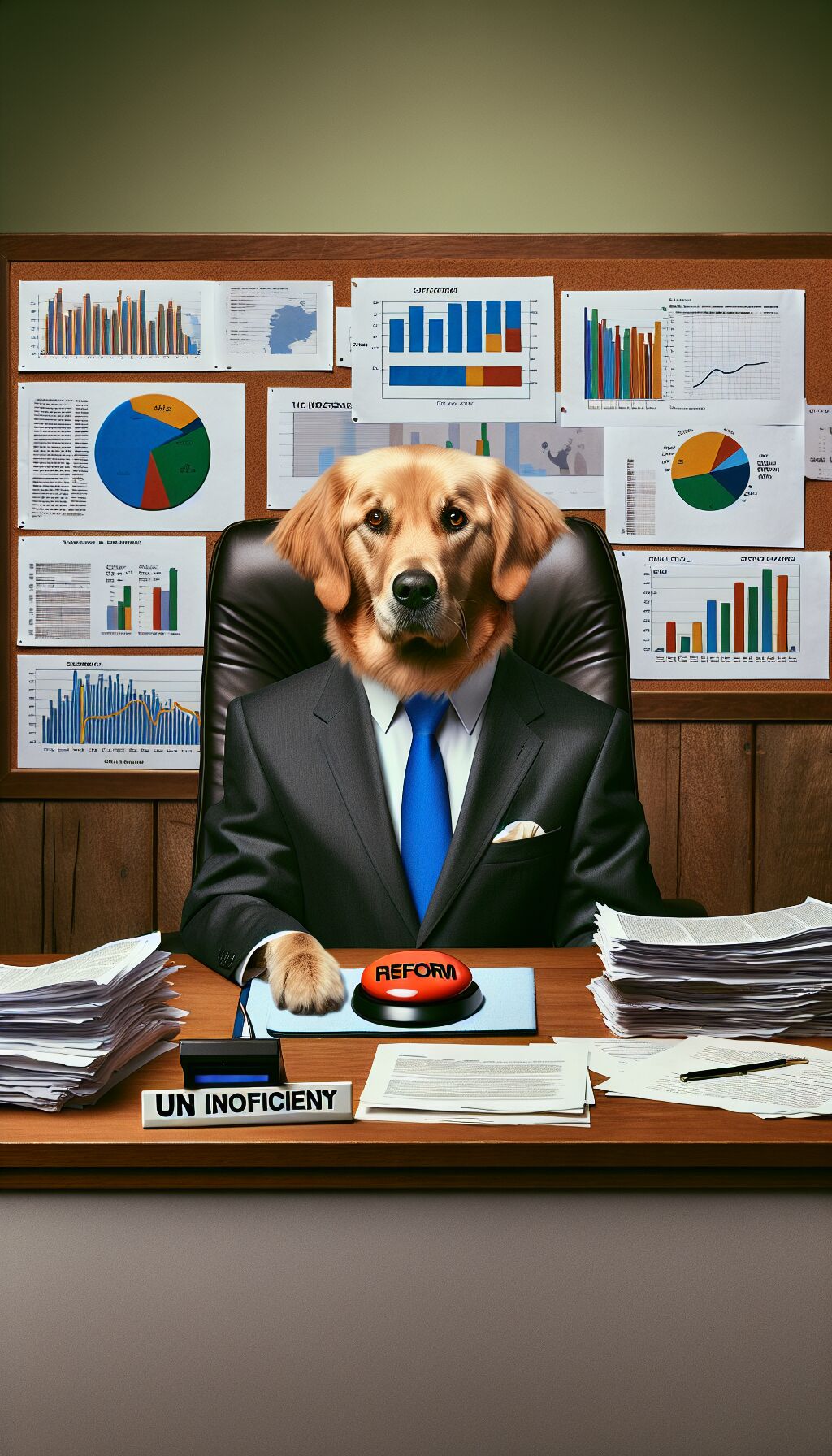DOGE-UN: An Initiative to Rein in Inefficiency at the United Nations
EXCLUSIVE: A coalition of disillusioned former United Nations officials has launched an ambitious initiative called “DOGE-UN” aimed at exposing inefficiencies and waste within the global organization. This investigative effort seeks to shed light on how funds are being mismanaged and aims to bring about significant reform ahead of the critical 2026 secretary-general selection.
The Birth of DOGE-UN
Similar in spirit to Elon Musk and Vivek Ramaswamy’s “Department of Government Efficiency” (DOGE), the DOGE-UN initiative aims to catalyze change by evaluating the flow of cash into and out of the United Nations and aligning it with tangible results. Hugh Dugan, a notable figure in this movement, expressed disappointment at the agency’s bureaucratic tendencies that have emphasized output—the number of meetings held or resources purchased—over meaningful outcomes, such as resolving conflicts or alleviating global hunger.
Leading Voices Behind the Initiative
Dugan, who has served on the U.S. delegation to the U.N. and was previously a National Security Council adviser, stated, “Why stop at this country’s federal agencies? We need to centralize our understanding of our cash flow to and from the U.N. and the results we’d like to see from our participation in international organizations.” He is collaborating with a group of former U.N. General Assembly presidents who meet regularly to discuss systemic issues plaguing the organization.
Identifying Inefficiencies
The effort is designed to tackle the critical question: “Is the U.N. working, and is it working for us?” Dugan’s team comprises both former insiders and those who have been external observers, tasked with identifying weaknesses in the U.N.’s operational framework. “Unfortunately, the mindset there over the years prefers to look at outputs over outcomes,” he lamented. The initiative plans to generate a detailed report that will scrutinize whether the U.N. is performing its fundamental role effectively.
Internal Oversight Concerns
Currently, the U.N. has an Office of Internal Oversight Services that ostensibly reviews its operations. However, Dugan pointed out a significant flaw: this office is internal and lacks the independence that other government agencies enjoy with their inspectors general. He referenced a recent incident where a high-ranking U.N. official was ordered to repay million due to mismanagement involving dubious financial dealings. Dugan emphasized, “Usually, there is no consequence for bad behavior, and that’s a rare thing that they caught this one.”
Historical Precedents of Mismanagement
Dugan brought attention to past scandals, such as the infamous oil-for-food program during the regime of Iraqi dictator Saddam Hussein, who reportedly siphoned more than billion through illicit oil sales. This history of mismanagement underscores the urgency for the DOGE-UN initiative. “I’m hoping this will serve to really crack open this dark chamber there that seems to just perpetuate itself on the goodwill of the charter, but actual performance is not serving the peoples of the world,” he stated.
U.S. Financial Contributions and Their Impact
Founded post-World War II to foster global peace and human rights, the U.N. significantly depends on the U.S., which contributes about a third of its total budget. In a notable shift, President Biden increased U.S. funding from .6 billion in 2020 to .1 billion in 2022. This financial clout provides leverage for the U.S. to demand accountability and reform within the agency, especially if its global priorities diverge from U.N. operations.
Future Considerations
As the U.N. heads towards the pivotal 2026 secretary-general election, Dugan’s initiative could play a critical role. The U.S. will retain veto power over any candidate, allowing it to influence the future direction of the organization significantly. Moreover, the U.N. relies heavily on U.S. contributions for various global aid programs, highlighting the importance of presenting a strong case for reform.
Addressing Global Influence and Accountability
Dugan’s report is expected to also examine the potential for China to manipulate aspects of the U.N. for its own geopolitical interests. With a significant increase in the number of Chinese nationals employed by the U.N., concerns have arisen about their influence on the organization’s operations and funding allocations.
Conclusion: A Call for Action
The DOGE-UN initiative stands as a rallying cry for reform at an institution that has become synonymous with inefficiency in the eyes of critics. As Dugan and his collaborators intensify their efforts, the broader international community awaits their findings, hoping they will lead to meaningful changes that enhance the UN’s effectiveness and ensure it continues serving its fundamental mission to benefit global society.
In the realm of public discourse, such initiatives highlight a growing sentiment that reform is not only needed but urgent. The reforms sought by DOGE-UN could potentially resonate with citizens across the globe, advocating for transparency, accountability, and efficiency in international organizations.










